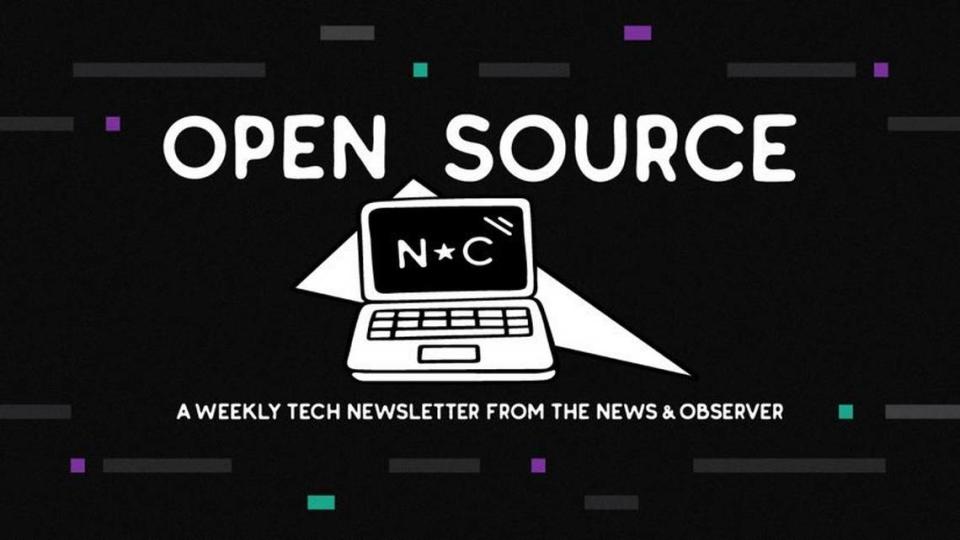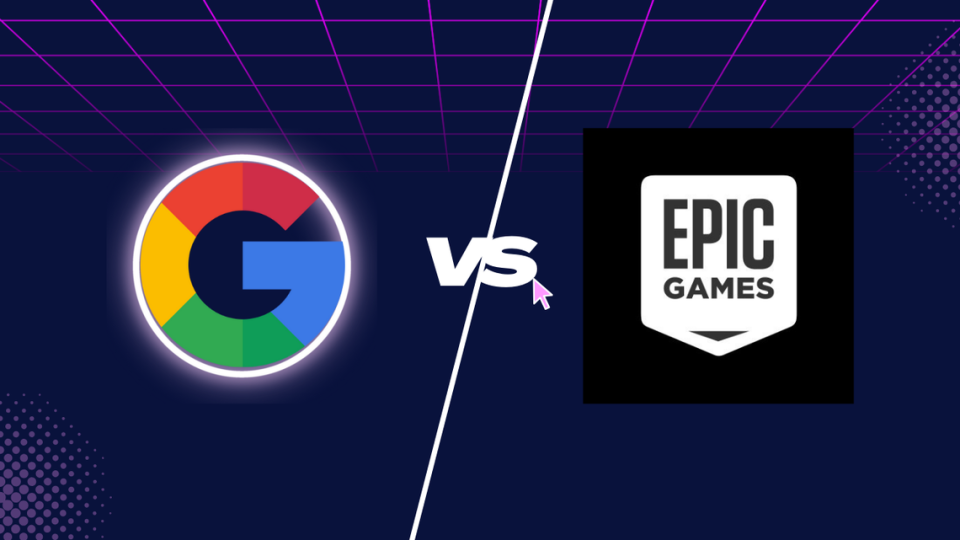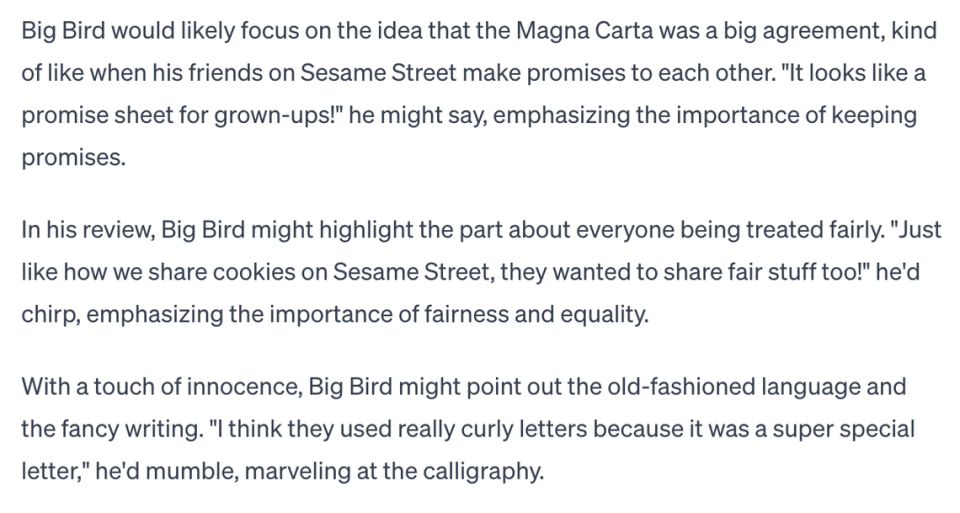Open Source: How the NC Triangle (and I) use ChatGPT one year in
I’m Brian Gordon, tech reporter for The News & Observer, and this is Open Source, a weekly newsletter on business, labor and technology in North Carolina.
On Nov. 30, 2022, OpenAI launched a large language model that quickly wowed users with its rapid, original, creative and (mostly) accurate answers.
I’m among the more than 100 million people who’ve tried it. However, my ChatGPT experiences have mostly been limited to silly party tricks (How might Big Bird review the Magna Carta?) rather than as a practical tool.
I know there are real world purposes. Twice I’ve used the platform to inform my reporting: first, for initial background on why Delaware is the go-to state for business incorporations and, second, for a story ironically about how ChatGPT is reshaping college admission essays.

I assure you and my editor nothing was copied or accepted without further confirmation from the platform; for me, it acted as a supercharged Google search — structuring responses that helped me better understand the topics I was writing about.
Ahead of the one-year anniversary, I reach out to a local Reddit community to hear how Triangle residents use ChatGPT practically. Here are seven of the wide-ranging responses.
1. Meal Planning: “Ask it for some recipe ideas and it’ll help parse the ingredients you need and take into account any food preferences.”
2. Dungeons & Dragons: “I use it as a brainstorming tool for Dungeons & Dragons character/campaign creation, namely as a tool to generate specific details, names, etc. so I can focus on the big picture.”
3. Writing code: “I’m an NC State computer science student. I use it all the time for programming. It’s very good at explaining new concepts and troubleshooting/debugging faulty code.”
“Professors have started to come around on it, with some explicitly giving us permission to use GPT tools to our heart’s content.”
4. Job applications: “Great for cover letters, tweaking resumés, follow-ups.” (The commenter said they have upcoming interviews scheduled.)
5. Trip itineraries: “I planned a 10-day trip to Egypt using it (Cairo, Luxor, and Aswan)! I think I asked something like “how to spend 10 days in Egypt.” It basically planned a sample itinerary like spend x days here then take a 3-day River cruise and spend x nights here… it was really helpful because I get overwhelmed with searching online so this made it simple!”
6. Completing performance reviews: “It did a better job than I could.”
7. Crafting emails: “I’ve used it to draft mass emails to send to customers, used it for base wording and then made a few changes on my own.”
Triangle-area businesses and organizations have also embraced the “magic” of ChatGPT.
JupiterOne, a large Research Triangle Park-based cybersecurity company, has a ChatGPT-backed program convert customer queries into proprietary language JupiterOne’s systems can process. And Microsoft (an investor in OpenAI) has given Duke University early access to its AI-powered Copilot program for Microsoft 365 products like Word, Excel, Teams and Outlook.
“Aside from the obvious uses, I’ve been using AI image generation as a substitute for images in PowerPoint,” said Jeff Volkheimer, Duke Health’s senior director of collaborative technology partnerships. “It is a great way to help showcase diversity and other DEI initiatives in a way that allows for a lot of creativity.”

As with any new technology, generative AI has brought concerns. Privacy rights. Copyright infringements. Bias. Factual errors. Job displacement. We’ll hopefully grapple with all that as a society.
Given how much ChatGPT has already changed, it feels like it’s been around for more than 12 months. It’s capabilities have improved, and while I use the free version, I’m told the latest paid platform is superior.
Let’s see where it’s at this time next year. Perhaps it’ll be writing this newsletter.
NC strengthens “battery belt” status
North Carolina is loving lithium-ion batteries. This week, the state announced its third lithium-ion project in about a month, a future 350-worker facility north of Charlotte.
The Tar Heel State is fast becoming central to the “battery belt” extending across the American South.
Under the federal Inflation Reduction Act, electric vehicle battery producers are incentivized to manufacture in the U.S., and many are drawn to Southern states like Georgia, South Carolina and North Carolina for their railroad connectivity, lower electrical costs and ample land. I’m sure the general lack of unionization in the region is a factor as well.
In addition to the three most recent projects, Toyota announced at the end of October it will significantly expand its investment in a 5,000-worker lithium-ion site near Greensboro.

Epic and Google spend big on witnesses
When a company worth billions sues a company worth trillions, expert witnesses get paid. That’s one takeaway from the ongoing antitrust case between Cary’s Epic Games and Google.
According to live coverage from The Verge, Epic’s mobile security expert witness shared in cross examination he’s been paid around $150,000 for his time (at $750 an hour). Google’s expert conceded he has made around $120,000 to testify. Another Epic expert, Stanford University economist Doug Bernheim, later acknowledged his firm charges $1,600 an hour.
The attorneys certainly brought up compensation to sow doubt about these testimonies. Epic v. Google is a jury trial by the way.
But paying witnesses is par for the course said Press Millen, an antitrust trial lawyer in Raleigh.

“I think very few juries are surprised that A: expert witnesses are paid, and B. how much they are paid,” he said, adding “I rarely bother with that question.”
Millen explained there are rules governing how witnesses are compensated, including that they can’t have a financial stake in the outcome of the trial. Expert witnesses often are paid in criminal cases as well.
The Epic-Google trial is poised to wrap up before the holidays. We’ll continue to track the hearing and eventual verdict.
Short Stuff: Boom readies first flight, Sec. Sanders warns of harmful tax
Prominent activist shareholder Jana Partners bought a small stake in the Durham semiconductor chipmaker Wolfspeed.
Artificial intelligence needs to be more transparent, says Howso (formerly Diveplane) founder Michael Capps, who was in Washington, D.C., on Wednesday to speak at a Senate forum on AI.
Research Triangle Park’s Arrivo BioVentures raised $45 million in Series B funding to support the development of treatments for major depressive disorder and pancreatitis.
20 years after the Concorde made its last supersonic flight, Greensboro-bound Boom Supersonic is gearing up for its first supersonic test flight, which could happen before the end of the year.
“We expect to fly XB-1 as soon as additional ground tests are safely and successfully completed,” Boom spokesperson Aubrey Scanlan emailed this week.

VinFast announced upgrades to its previously slammed VF 8 electric SUV.
And in VinFast stock watch: Shares of the Vietnamese automaker have crept up a bit this month. The latest market jump came after the company said it will showcase its higher-end model at a major United Nations climate change summit in Dubai (yes, a petrostate is hosting a U.N. climate conference.)
On Monday, N.C. Commerce Secretary Machelle Baker Sanders implored North Carolina Congressional Delegation members to help defer Section 174 of the federal tax code, which Sanders argued puts a “tax on innovation.” Read Sanders letter here.

National Tech Happenings
After a brief banishment, Sam Altman is back as CEO of OpenAI.
I read Sports Illustrated weekly as a child. It’s sad, and ethically extremely dubious, that the outlet has reportedly invented “human” reporters to obscure its AI-created posts.
Montagues and Capulets. Aries and Taurus. iPhone users whose texts appear in blue bubbles and Android users whose texts appear in green bubbles. Some relationships are inherently at odds, but love triumphs. Apple says it will improve the messaging experience between Android and iPhone owners.
Thanks for reading!

Open Source
Do you enjoy Triangle tech news? Subscribe to Open Source, The News & Observer's weekly technology newsletter and look for it in your inbox every Friday morning. Sign up here.

